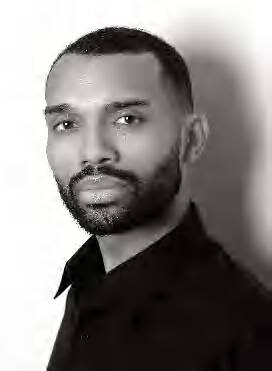The following are excerpts from the book, Brother West: Loving and Living Out Loud, a Memoir, by Dr. Cornel West, Princeton University professor, notable public intellectual, "aspiring bluesman in a world of ideas, and jazzman in the life of the mind."
"... a featherless, two-legged, linguistically conscious creature born between urine and feces." (pg. 4)
"... hope learned and earned in the harsh realities of daily struggle; hope that remains on intimate terms with death; hope that is life-renewing and opposed to the cheap optimism of market-driven America, where Disneyland is sold as heaven on earth" ... "overcom[ing] the social death of slavery, the civic death of Jim Crow and Jane Crow, the psychic death of self-hatred, and the spiritual death of despair." (pg. 6)
"... [Keats] wrote about 'negative capability,' which he explained as the quality 'when a man is capable of being in uncertainties, mysteries, doubts, without any irritable reaching after fact and reason." (pg. 39)
"When I read the poetry of Walt Whitman, I could understand why he answered the question, 'Do I contradict myself?' with 'Very well then, I contradict myself. I am large, I contain multitudes." (pg. 40)
"I was a witness to how intelligent protest can cause real change." (pg. 51)
"... the catastrophic human condition - which is to say, the certain death of the flesh ..." (pg. 85)
"'Try again. Fail again. Fail better' - that's how Beckett saw it." (pg. 86)
"The central question ... the problem of evil ... doesn't go away ... But the fact that there is no reasoned-out answer doesn't turn you cynical. You live with the reality that the question remains, a challenge to your mind and your heart. You can't bring back the bodies that died in the Atlantic Ocean during the slave trade. You can't reconcile a tidal wave wiping out an entire city with the notion of a sovereign God. You can't equate catastrophe with the human condition - but you can, following the teachings of this particular Palestinian Jew, do what you can to help the least among us." (pg. 101)
[Concerning Haitian Emperor Haile Selassie's being deposed in 1974] "Some estimate that over 20 percent of all young people were killed. If your offspring was murdered, and you wished to reclaim his body, you were forced to stand in line and pay for the bullets that killed him." (pg. 143)
"... the widespread accommodation of American religion to the political and cultural status quo ... encourages an existential emptiness and political irrelevance ... worships the gods created by American society and kneels before the altars created by American culture." (pg. 147)
"... what would be Maestro Herbert von Karajan's last performance ... he ... invited me to stand in the wings to watch him conduct Bruckner's Seventh Symphony. By the time he put down the baton, he was so depleted that he couldn't walk. I carried him off the stage." (pg. 157)
"... looking at ourselves through the eyes of others who devalue us." (pg. 172)
"... either/or, absolutist, and supremacist mindsets lead to spiritual dead-ends." (pg. 173)
"... I learned that a man wearing a mask had broken into the kitchen and put a gun with a silencer to [former wife Elleni's] head. He wanted to know where I was." (pg. 177)
"We live in a creative tension with catastrophe." (pg. 179)
"God does not wink at America and close divine eyes to other nations." (pg. 186)
[Regarding failure to be above the fray] "... sometimes we fall into the muddy waters that we're trying to avoid." (pg. 188)
"To be an Afro-American ... is to be in the situation, intolerably exaggerated, of all those who have ever found themselves part of a civilization which they could in no wise honorably defend ... yet ... hoping to make the kingdom new, to make it honorable and worthy of life." (pg. 209)
"... I had heard of a sarcastic memo at the World Bank, where [its former chief economist-turned-Harvard President Lawrence] Summers reportedly suggested shipping polluted materials to sub-Saharan Africa. The reasoning was that the region already suffered from overpopulation, and was under-polluted." (pg. 217)
"Deep and mature spirituality is rooted in a wrestling with catastrophe." (pg. 225)
[Regarding disappointment with others] "I have come to realize that everybody's who they are, and not somebody else." (pg. 239)
"... we must not confuse the empty media category of 'post-racial' with the reality of America becoming less racist. The former is an empty illusion, the latter is a grand achievement." (pg.240)
[Political centrism] moves toward the center for likeability, when often the truth lies not in the middle, but beneath the mediocrity of the superficial exchange." (pg. 241)
Subscribe to:
Post Comments (Atom)

No comments:
Post a Comment